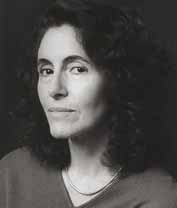Rozsika Parker: Difference between revisions
added Category:People educated at Wychwood School using HotCat |
|||
| (14 intermediate revisions by 13 users not shown) | |||
| Line 1: | Line 1: | ||
{{Short description|Mixed-ethnicity British historian}} |
|||
{{Use dmy dates|date=July 2015}} |
{{Use dmy dates|date=July 2015}} |
||
{{Use British English|date=July 2015}} |
{{Use British English|date=July 2015}} |
||
{{Infobox artist |
{{Infobox artist |
||
| name = |
| name = Rozsika Parker |
||
| image = Photo of Rozsika Parker.jpg |
| image = Photo of Rozsika Parker.jpg |
||
| imagesize = |
| imagesize = |
||
| Line 28: | Line 29: | ||
Parker was born in [[London]] and spent her early years in [[Oxford]], studying at [[Wychwood School]].<ref name="Guardian"/> |
Parker was born in [[London]] and spent her early years in [[Oxford]], studying at [[Wychwood School]].<ref name="Guardian"/> |
||
Between the years 1966–1969, Parker studied for a degree in the history of [[European art]] at the [[Courtauld Institute]] in London. |
Between the years 1966–1969, Parker studied for a degree in the history of [[European art]] at the [[Courtauld Institute]] in London. In 1972, she joined the feminist magazine ''[[Spare Rib]]''. She and [[Griselda Pollock]] then went on to found a feminist group, The Feminist Art History Collective. <ref name="Guardian"/> |
||
In the 1980s, Parker had two children with the Jungian analyst [[Andrew Samuels]], a boy and a girl.<ref name="Guardian"/> |
In the 1980s, Parker had two children with the Jungian analyst [[Andrew Samuels]], a boy and a girl.<ref name="Guardian"/> |
||
Parker died in 2010 |
Parker died in 2010 at age 64 of cancer.<ref name="Guardian"/> |
||
n vkeffvtbv |
|||
It was sad that she passed away. |
|||
==Legacy== |
==Legacy== |
||
In 2013, the ''Rozsika Parker Essay Prize'' was established by the British Journal of Psychotherapy.<ref name="bjp">{{cite web| title=Rozsika Parker Prize | url=http://onlinelibrary.wiley.com/journal/10.1111/(ISSN)1752-0118/homepage/roziska_parker_prize.htm | website=British Journal of Psychotherapy | publisher=Wiley Online Library | accessdate=23 December 2017 | doi=10.1111/(ISSN)1752-0118 }}</ref> |
In 2013, the ''Rozsika Parker Essay Prize'' was established by the British Journal of Psychotherapy.<ref name="bjp">{{cite web| title=Rozsika Parker Prize | url=http://onlinelibrary.wiley.com/journal/10.1111/(ISSN)1752-0118/homepage/roziska_parker_prize.htm | website=British Journal of Psychotherapy | publisher=Wiley Online Library | accessdate=23 December 2017 | doi=10.1111/(ISSN)1752-0118 }}</ref> |
||
Parker's contention that embroidery was a way to educate women and a weapon for resistance helped develop computational fiber arts as Anastasia Salter notes in her essay, Re:traced Threads: Generating Feminist Textile Art with Tracery.<ref>{{Cite journal |last=Salter |first=Anastasia |date=3 May 2020 |title=Electronic Book Review |doi=10.7273/dped-gd56 |url=https://doi.org/10.7273/dped-gd56 }}</ref> |
|||
==Books== |
==Books== |
||
| Line 64: | Line 65: | ||
[[Category:Alumni of the Courtauld Institute of Art]] |
[[Category:Alumni of the Courtauld Institute of Art]] |
||
[[Category:British art historians]] |
[[Category:British art historians]] |
||
[[Category:British women art historians]] |
|||
[[Category:Feminist historians]] |
[[Category:Feminist historians]] |
||
[[Category:Feminist studies scholars]] |
[[Category:Feminist studies scholars]] |
||
[[Category:English feminist writers]] |
[[Category:English feminist writers]] |
||
[[Category:Feminist theorists]] |
[[Category:Feminist theorists]] |
||
[[Category: |
[[Category:People educated at Wychwood School]] |
||
Latest revision as of 15:11, 8 June 2024
Rozsika Parker | |
|---|---|
 | |
| Born | 27 December 1945 London, United Kingdom |
| Died | 5 November 2010 (aged 64) |
| Nationality | British |
| Known for | Painting |
| Movement | Psychotherapy, Art History |
| Partner | Andrew Samuels |
Rozsika Parker (27 December 1945 – 5 November 2010) was a British psychotherapist, art historian and writer and a feminist.[1]
Biography
[edit]Parker was born in London and spent her early years in Oxford, studying at Wychwood School.[1]
Between the years 1966–1969, Parker studied for a degree in the history of European art at the Courtauld Institute in London. In 1972, she joined the feminist magazine Spare Rib. She and Griselda Pollock then went on to found a feminist group, The Feminist Art History Collective. [1]
In the 1980s, Parker had two children with the Jungian analyst Andrew Samuels, a boy and a girl.[1]
Parker died in 2010 at age 64 of cancer.[1]
Legacy
[edit]In 2013, the Rozsika Parker Essay Prize was established by the British Journal of Psychotherapy.[2]
Parker's contention that embroidery was a way to educate women and a weapon for resistance helped develop computational fiber arts as Anastasia Salter notes in her essay, Re:traced Threads: Generating Feminist Textile Art with Tracery.[3]
Books
[edit]- Old Mistresses: Women, Art and Ideology, with Griselda Pollock (1981)
- The Subversive Stitch: Embroidery and the Making of the Feminine (1984)
- Framing Feminism: Art and the Women's Movement 1970–1985 (1987)
- The Subversive Stitch: Embroidery and the Making of the Feminine (1989)
- Torn in Two: Experience of Maternal Ambivalence (1995)
- Mother Love, Mother Hate: The Power of Maternal Ambivalence (1996)
- The Anxious Gardener (2006)
References
[edit]- ^ a b c d e Petrie, Ruthie (21 November 2010). "Rozsika Parker obituary". The Guardian. Retrieved 23 December 2017.
- ^ "Rozsika Parker Prize". British Journal of Psychotherapy. Wiley Online Library. doi:10.1111/(ISSN)1752-0118. Retrieved 23 December 2017.
- ^ Salter, Anastasia (3 May 2020). "Electronic Book Review". doi:10.7273/dped-gd56.
{{cite journal}}: Cite journal requires|journal=(help)
External links
[edit]- Melissa Benn, "Deep maternal alienation", The Guardian, 28 October 2006
- "In Memoriam: Rozsika Parker, Feminist Art Historian and activist"
- Interview with Griselda Pollock about Rosie Parker, Last Word, BBC Radio 4, 3 December 2012.
